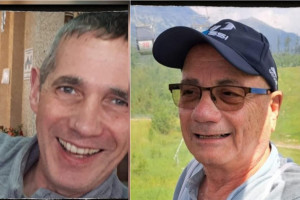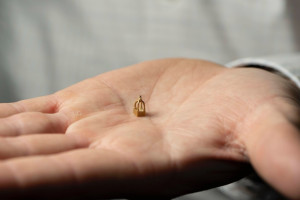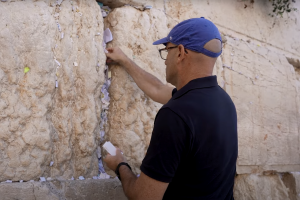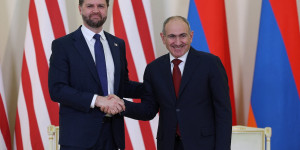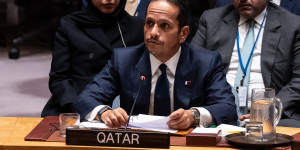Israeli combat helicopter pilots recall Oct 7 mission in new book
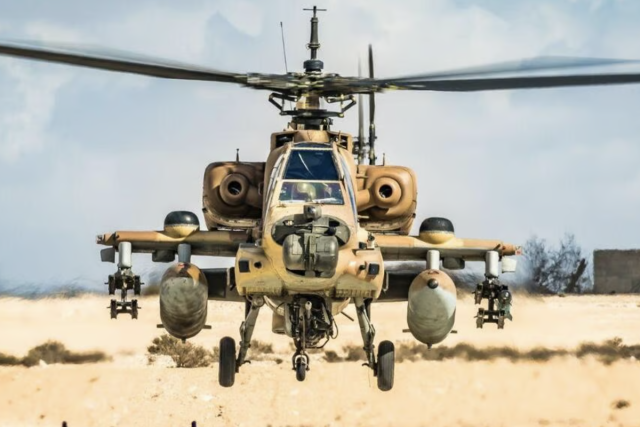
Israeli combat helicopter pilots recounted the difficult Oct. 7, 2023, mission in a new book, "War Machine – The Faces Behind the Helmet: Attack Helicopter Pilots Tell Their Story." The Hebrew-language book reveals the life and death decisions taken during the darkest day in modern Israeli history. All names below are pseudonyms for security reasons.
IDF Lt.-Col. (res.) Tavor, an Israeli combat helicopter pilot of Squadron 113, recalled the chaos at 6:40 a.m. on Oct. 7, 2023, in the midst of the Hamas terrorist group's invasion of southern Israel.
“Something there felt odd,” he wrote. “Usually, there’s no logic in scrambling two attack helicopters from the north to the Gaza envelope. An attack helicopter cannot deal with Grads, Qassams or rockets fired from Gaza. There’s Iron Dome and other systems for that.”
Major (res.) Boaz, a helicopter pilot from Squadron 190, recalled the challenging role as combat manager during the first 24 hours of the war.
“But the first two hours were the formative event of the war for me,” Boaz told Ynet News. “To be in operations, with the sense that everything above you had collapsed, that systems weren’t functioning, that there was no one to talk to, in total uncertainty, while people were being killed and murdered – that’s a hard feeling. Those in the air also faced great difficulties. Everything was a matter of life and death. It’s not easy being in a position where every word or action determines whether people live or die. At first, I carried a lot of anger about everything that didn’t work that day. I felt ashamed to be part of a defense system that failed,” he said.
Apache pilot Tavor was one of the first Israeli Air Force (IAF) pilots to reach the invaded border area between Israel and Gaza. He recalled the difficult decision to fire missiles close to the IDF Gaza Division headquarters.
“That was the hardest dilemma I faced that day,” he admitted.
“In general, the first missile launched from a helicopter is the hardest of the sortie, even if it’s the second or third mission that day. There are a few seconds until it hits the ground, and in those seconds, you don’t breathe, waiting for it to strike properly. Once they tell you, ‘it’s OK, keep going,’ the second one is easier,” he continued.
Tavor said he was surprised that he could not see any Israeli forces on the ground during the initial phase of the Hamas invasion.
“I couldn’t understand how there were no military forces on the ground – only (Hamas) militants. I announced to everyone in the air that they had crossed the fence, that there were terrorists on our territory, and that I had already fired inside Israeli territory. I said it in order to break for the other pilots the psychological barrier against firing on our side of the border. In routine, it is strictly forbidden to fire in our territory, and I wanted to make clear to the rest of the formation that we were in a new reality,” Tavor said.
“We had run out of munitions. Fuel in the helicopter was running low. I flew quickly to the base to refuel and rearm. On the way, I saw convoys of civilian cars, hundreds of them, some driving, some stuck in traffic. I had no idea what all those vehicles were doing there. Only later did I realize these were the cars fleeing from the Nova party,” he added.
Boaz quickly understood that every wasted moment could cost lives.
“I understood every minute on the ground cost lives. Calls began pouring into the squadron from the field – operations officers, watch officers, staff officers, people we had trained with for years, and suddenly they couldn’t get an answer anywhere else. They called us out of desperation and helplessness,” he explained.
In early 2024, Tavor participated in the daring rescue of two male hostages who had been kidnapped during the Oct. 7 attack and held by Hamas in the southern Gaza city of Rafah. He contrasted the failure of October 7 with the success of the rescue mission.
“As a pilot in the operation that freed Luis Har and Fernando Marman, you realize the enormous dissonance between the IDF’s and security forces’ strength and capabilities when planning and initiating – versus when an event comes as a surprise,” Tavor said.
“Maybe in 20 years someone will make a film about all the things that happened in this war,” he predicted. “I was in many events worthy of a full day of study and debriefing, yet they passed us by too quickly to dwell on. I was in a hostage rescue, in special operations, we did things very professionally, very challenging – in which I did the best I could.”
Information about the Hebrew-language book, "War Machine – The Faces Behind the Helmet," can be found here.

The All Israel News Staff is a team of journalists in Israel.
You might also like to read this:


